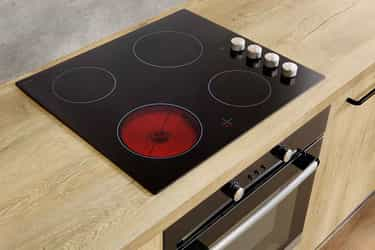In this corner, fighting out of Samsung Town, South Korea, 10-time defending champion as the number one seller of TVs in the world, Samsung Electronics.
In this corner comes the challenger, the number two seller of TVs in the global market, fighting out of Seoul, South Korea, LG Electronics.
It's a heavyweight battle for the supremacy of ultra-high definition TVs, or 4K displays, between these two Korean tech giants. Their "fighting styles" couldn't be more different. Samsung is pushing quantum dot display technology while LG Electronics is countering with organic light-emitting diode (OLED) display technology.
QUANTUM DOT TECHNOLOGY VS. OLED
In the past year Samsung has introduced its first range of displays incorporating QD technology under its SUHD label. During that time, the company has established a significant patent portfolio in the display area with 25 issued and 19 patent applications specifically relating to QD-enhanced displays.
Quantum dots fall into the category of nanocrystals, which are particles fabricated to the smallest of dimensions from only a few atoms and upward. Research analyst John Oliver
says that QDs, in material terms, "are semiconductor or metallic materials with a size range from a few to a few thousand nanometers. In essence, a QD can be thought of as an artificial atom."
At these tiny dimensions, QDs behave according to the rules of quantum physics, Oliver explains. Adjust the size and shape of the dot, and you adjust its color output, because the specific wavelength—the color—of the created light depends on the size of the quantum dot. Larger quantum dots emit light in the red end of the spectrum while the smaller ones emit light towards the blue end. The quantum dot screen uses blue LEDs instead of white LEDs, and the
QDs directly convert the light into highly saturated narrow-band primary colors.
Samsung claims its QD technology can generate visuals that rival OLED screens. But David VanderWaal, vice-president of marketing with LG Electronics, maintains its OLED-based screens are superior. As
reported by Joao-Pierre S. Ruth, VanderWaal maintains OLED displays yield higher contrast ratio and color accuracy than QD-based displays. "The result is content that looks real to the human eye," he claims.
LG's commitment to OLED TV coincides with the roll-out of high dynamic range (HDR) images, which promise more realistic colors and details. HDR technology can also achieve resolutions up to 8K, doubling current SUDH capacity.
Samsung and LG are both working with major streaming services to bring HDR content to the experience.
At a press conference at the IFA consumer electronics show in Berlin last month, Michael Zoeller, European head of visual display at Samsung, cited a test by HDTVtest that proved Samsung's TVs trumped LG's for brightness and better contrast when watching HDR content.
An LG spokesperson parried Samsung's jab,
telling CNBC's Arjun Kharpal, "You can't just cherry pick certain aspects of a test and tell consumers. If you look at the overall story of OLED vs other TVs, all TV experts will say OLED is better tech."
Sounds like a war of words between an upstart challenger and the reigning champ at a pre-bout press conference.
One fact is known: in terms of sold units, Samsung
owned a 21% market share of the global TV market in 2015. Challengers like LG Electronics, which held 12.6% of the market in 2015, are quickly closing the ranks behind the champ.
One fact is unknown: who will come out on top.
Get your ringside seats, folks.




